Should Switzerland cooperate with China on development aid?
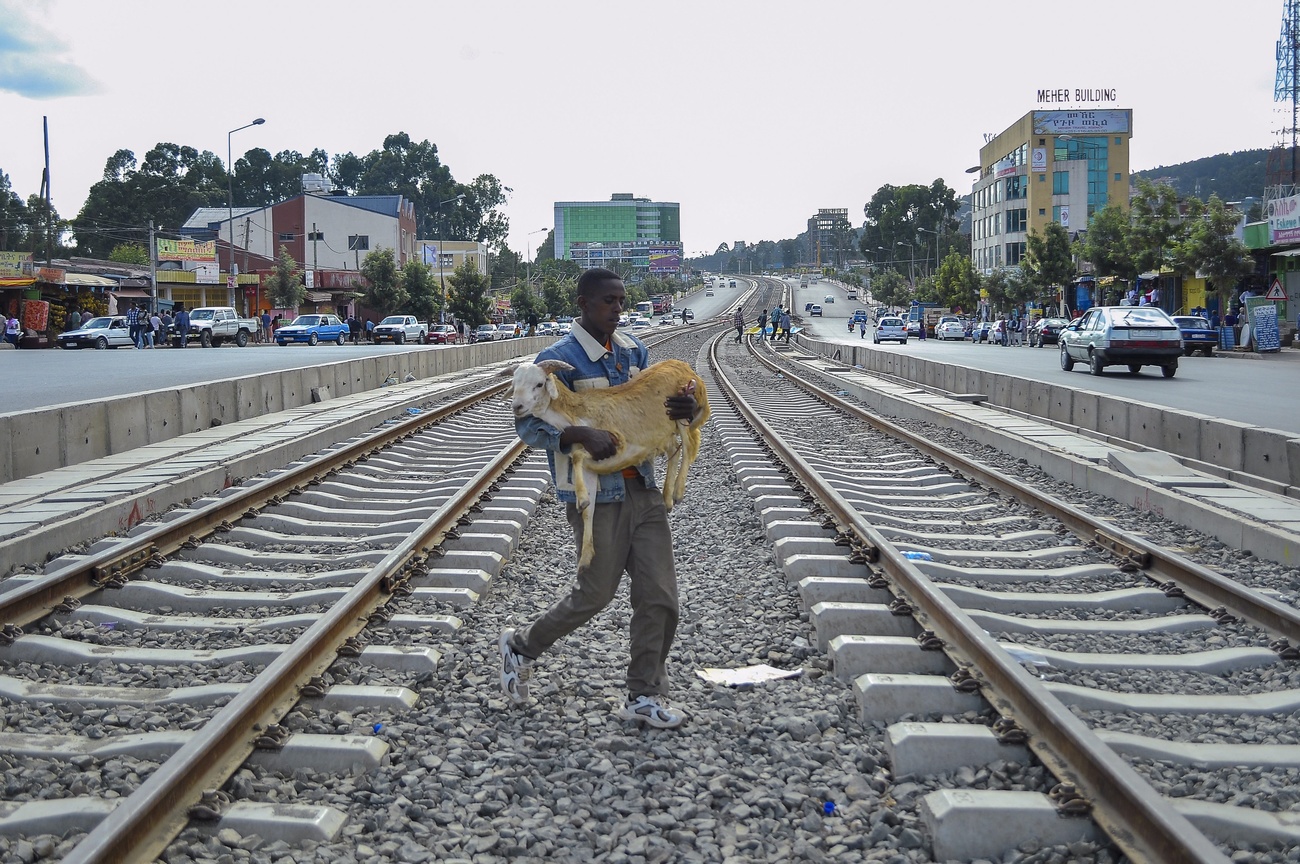
China has reached out to Switzerland to cooperate on development aid projects. Switzerland has so far been open to such collaborations. NGOs warn of China’s political motives but agree its financial clout could help reduce poverty.
In January China published its latest reportExternal link on international development cooperation. The report covered China’s approach to international aid and pointed out ten countries and regional organisations with which it “had strengthened exchanges” and “had conducted exchanges and visits”. One of those countries was Switzerland.
The paper also mentioned “tripartite cooperation programmes” with Switzerland in the form of a pilot project. SWI swissinfo.ch asked the Swiss foreign ministry whether the country was joining hands with China to provide development aid. The ministry replied that informal contacts with the relevant Chinese authorities had existed for more than ten years.
In January 2019 Switzerland became the first – and to date only – country to sign a memorandum of understanding with China’s state development agency, according to the foreign ministry. It said Switzerland was looking to pass on knowhow and share experiences. It also acknowledged that it was open to cooperation with China in third countries.
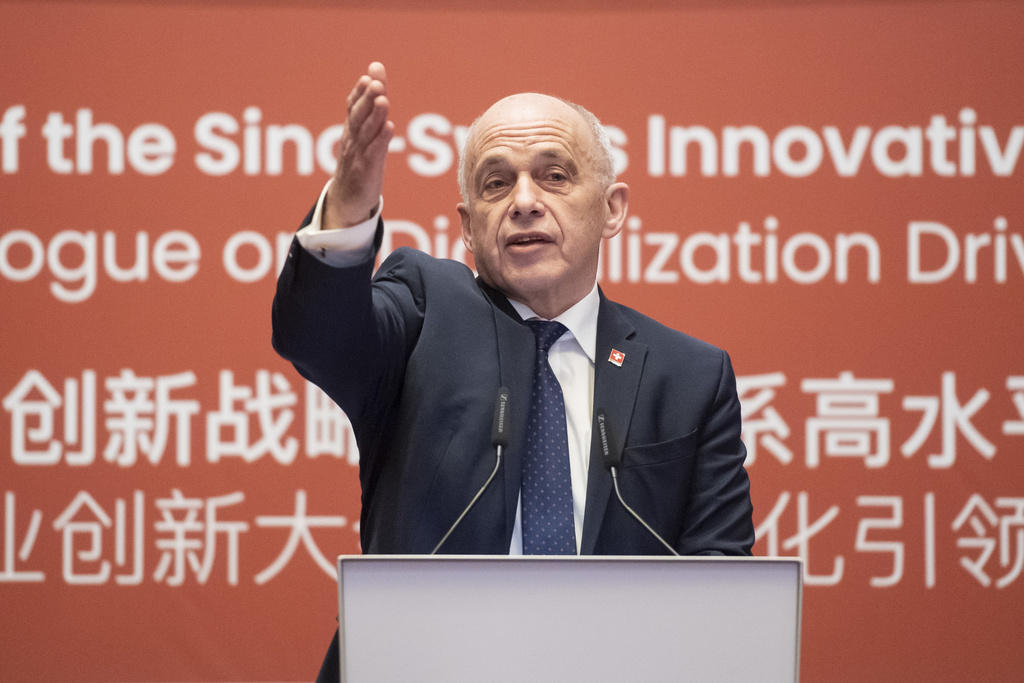
More
Why Switzerland and China are courting each other
“Given China’s growing importance in international development cooperation, Switzerland has an interest in this dialogue,” the ministry said.
China’s budget for development cooperation is enormous, though no official figures are available. The same goes for the loans it grants to poor countries. “We estimate that China has become by far the largest public donor for developing and emerging countries,” economist Sebastian Horn, who focuses on China, told the Neue Zürcher Zeitung newspaper in April.
Cooperating with China in development aid does not come without problems. China has a reputation of saddling third countries with debt, overlooking human rights issues and dealing with corrupt officials. In the light of China’s rising geopolitical clout, Switzerland presented last March its first ever China foreign policy strategy highlighting “the differences in values between the two countries”.

More
China slams Switzerland for ‘interfering in internal affairs’
Swiss NGOs are critical of potential collaborations. Kristina Lanz from Alliance Sud, a thinktank grouping the six main Swiss charities concerned with international cooperation, believes that Chinese development aid is guided by political reasons concerning power and rarely benefits the poor (see box).
The following points have earned criticism:
– A large part of China’s development cooperation is made up of loans to African countries which, critics say, contributes to the national debt of these countries. Some claim that China purposely drives countries into debt to take over their infrastructure and control their national budgets.
– With its development cooperation, China pursues its own power-political, geopolitical and economic interests.
– China has a keen interest in African raw materials.
– China does not differentiate between economic development and development cooperation.
– China is not transparent.
– China cooperates with governments and businesses, and not with civil society.
– China does not attach conditions when it comes to corruption and human rights violations in beneficiary countries.
– China invests primarily in infrastructure and employs its own construction workers, some of whom remain in the country. If locals are employed, working conditions are poor.
– China builds infrastructure without taking care of the subsequent operation or maintenance.
– The quality of Chinese products and constructions is poor.
The Chinese embassy in Bern responded to these critical points as follows: “As a developing country with a history of suffering and poverty, China empathises with other developing countries […] Our motives are sincere and there is nothing to hide.”
It added that in actual cooperation, China also fully takes into account the actual situation of the recipient countries, shares its development experience and industrial technology with other developing countries in various ways without reservation.
“[China] helps developing countries improve their own capacity, and realises diversified, independent and sustainable development of the recipient countries,” the embassy wrote.
Of course, it said, it also takes environmental criteria into account. “We have helped relevant developing countries to build a number of clean energy projects. For example, the China-supported Garissa photovoltaic power station in Kenya,” it said, pointing out that China had so far carried out cooperation projects with 34 countries to combat climate change.
Pilot project
The pilot project mentioned in China’s white paper is a joint project with the Swiss Agency for Development and Cooperation (SDC) to combat bilharzia, a disease caused by parasitic worms prevalent in Southeast Asia.
“China approached us back in 2017 with the idea of a joint project to eliminate bilharzia in the Mekong region,” said Markus Dürst, the SDC’s desk officer for Asia. “The Swiss Tropical and Public Health Institute, the National Institute of Parasitic Disease in Shanghai and the World Health Organization (WHO) would have been involved in implementing it.”
However, he said the project had not been launched for several reasons, the main ones being change within the Chinese authorities (the China International Development Cooperation Agency was founded 2018) and the Covid-19 pandemic.
Fritz Brugger from the Centre for Development and Cooperation at the federal technology institute ETH Zurich also confirmed that efforts had been made to establish contacts between the Swiss and Chinese development authorities.
“In general, Chinese actors want to establish partnerships with Western actors,” he said, adding that the University of Geneva and the Centre for Development and Cooperation had also been approached by Chinese organisations.
“We still haven’t decided whether we’ll team up with any of these organisations,” Brugger added.
For its part, China is satisfied with the agreement. “It can be said that China-Swiss exchange and cooperation in the field of international development cooperation has a certain foundation and has great potential for future development,” the Chinese embassy in Bern told SWI swissinfo.ch in a written statement.
Better than nothing
Lanz from Alliance Sud said that as long as the concrete projects contributed to reducing poverty and strengthening civil society in the countries concerned, her organisation was not against Switzerland implementing aid projects with China.
“To better coordinate aid from all donor countries, it would be desirable to involve China more,” she said.
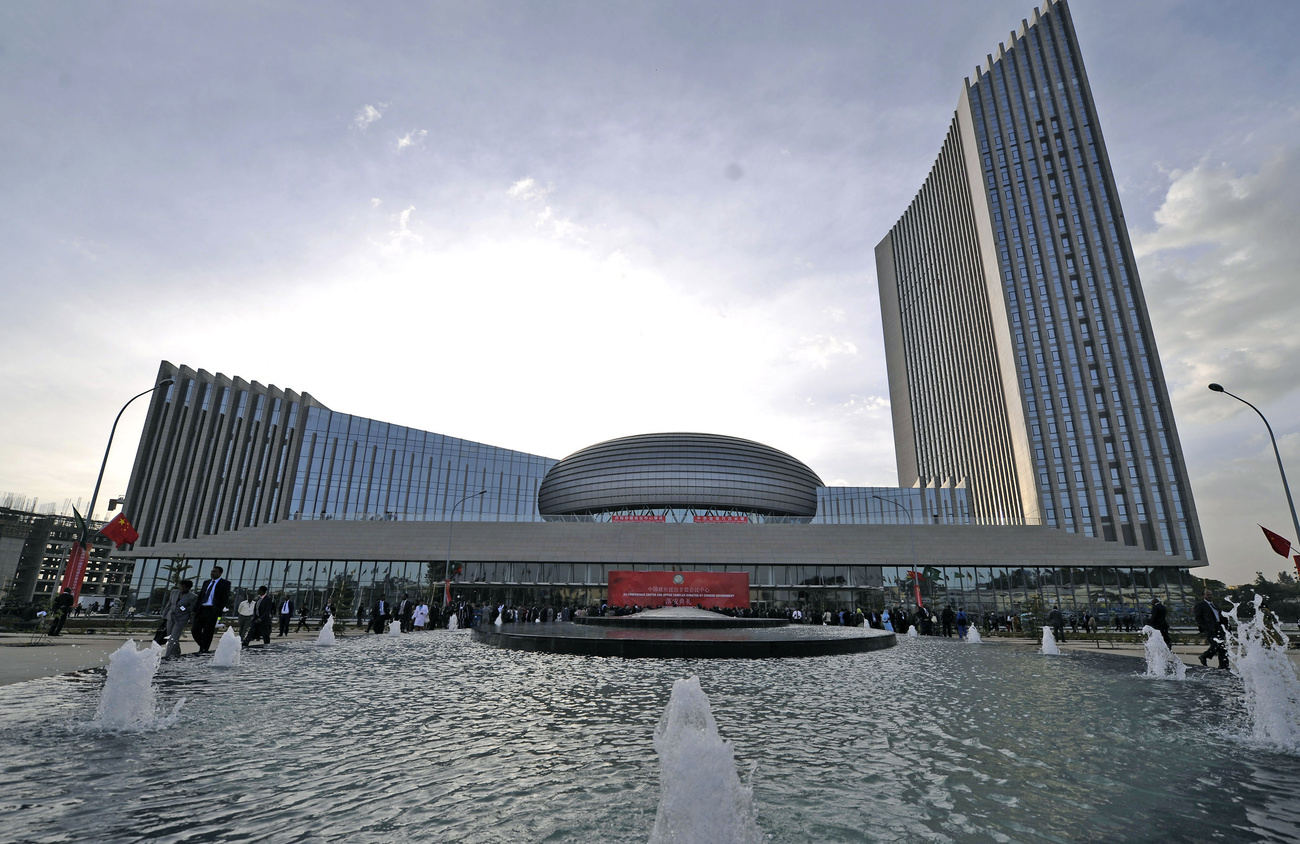
For Brugger, the question of whether Switzerland should be allowed to collaborate with China is moot. “Switzerland has been working with China since it initiated and spearheaded the foundation of the Asian Infrastructure Investment Bank in 2016,” he said. “Joint development cooperation with China is not new.”
No strings attached
China still considers itself a developing country and describes its development work as “South-South cooperation”, which refers to technical collaboration between developing countries. It’s not unusual for African countries to prefer Chinese aid over Western aid: it’s considered fast, efficient and, above all, it comes with no strings attached.
“China does not attach any conditions when it comes to corruption or human rights violations,” Lanz said. “Autocratic states obviously find it very attractive to get money just like that.”
Brugger agreed that the Chinese approach had its advantages for beneficiary countries. “Cooperation with Western governments has become quite cumbersome for African nations. It comes with too many conditions, and it can take a long time to negotiate a contract.”
Brugger also said it was only fair to say that China invests a lot in third countries. It is one of the most generous donors. “China has large sums of money to invest because of its currency reserves,” he explained.
China sees its impartiality as a strength. “China and recipient countries respect each other and treat each other as equals,” the Chinese embassy in Bern said. “When carrying out international development cooperation, China fully considers and respects the views and needs of recipient countries, does not interfere with the development path and internal affairs of other countries, does not impose its will on others, does not attach any political conditions, and does not seek political self-interest.”
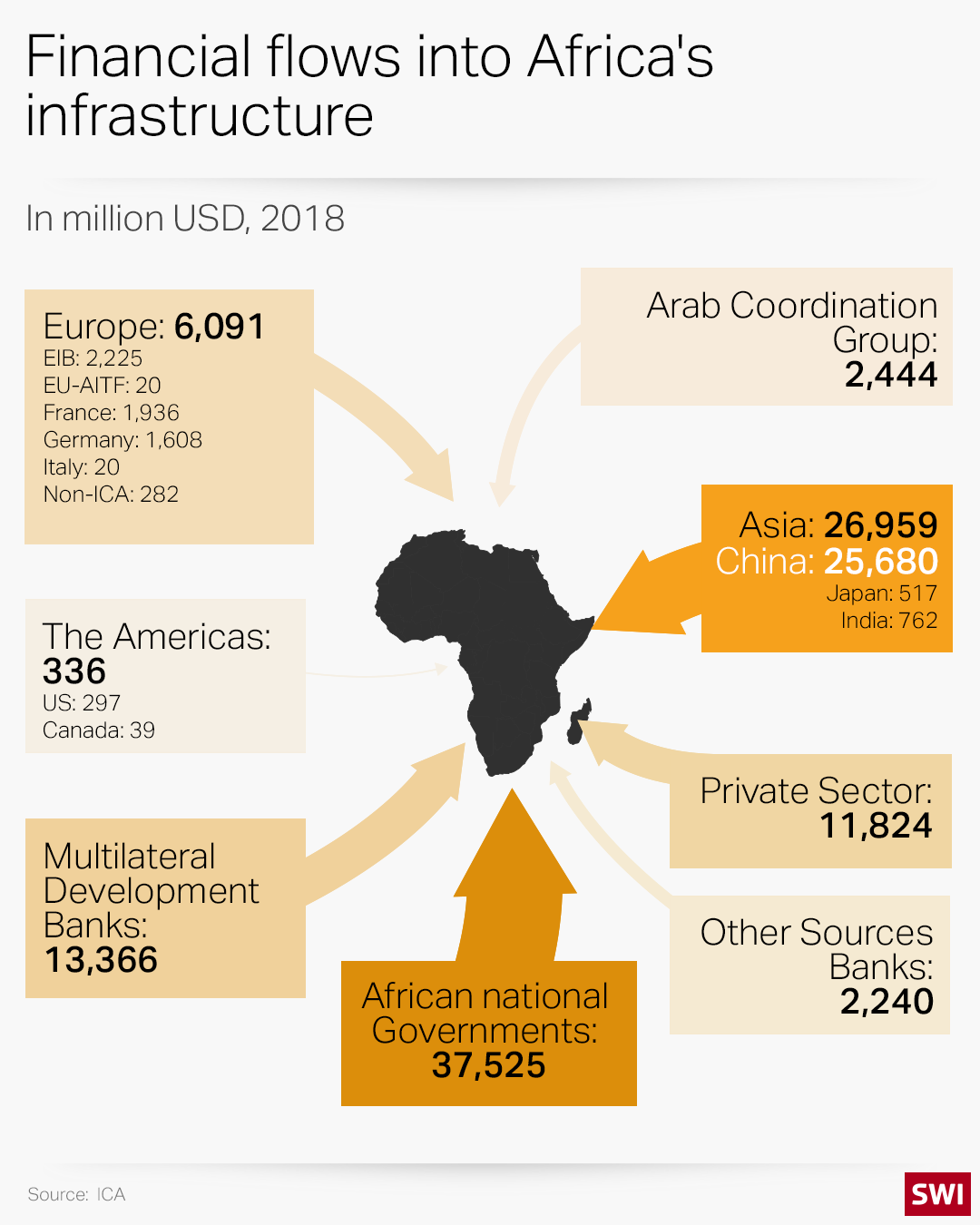
Bogeyman China
China is also very much involved in humanitarian aid. While Western countries bought Covid-19 vaccine doses for their own populations, China supplied countries around Asia and Africa with its homegrown vaccine.
Brugger said the issues were not black and white and argued that China should not be portrayed solely as the bogeyman.
“The debate on China is often limited to accusing it of doing everything out of self-interest or to improve its image, as well as pointing to the poor quality of its products. This is oversimplifying things. Thinking like that means we don’t even try to understand how China ticks and thinks in the long run.”
Understanding China is crucial, he stressed. “China is here to stay and is not going anywhere. We have to come to terms with this fact and find a way to work together sensibly and pragmatically.”
The Chinese embassy told SWI swissinfo.ch that China “keeps its promises and makes good on its promises […] This is the most important premise and foundation for China to build mutual trust, friendship and cooperation with other developing countries”.
(Translated from German by Billi Bierling; edited by Thomas Stephens)

More
Switzerland unveils its first China strategy

In compliance with the JTI standards
More: SWI swissinfo.ch certified by the Journalism Trust Initiative









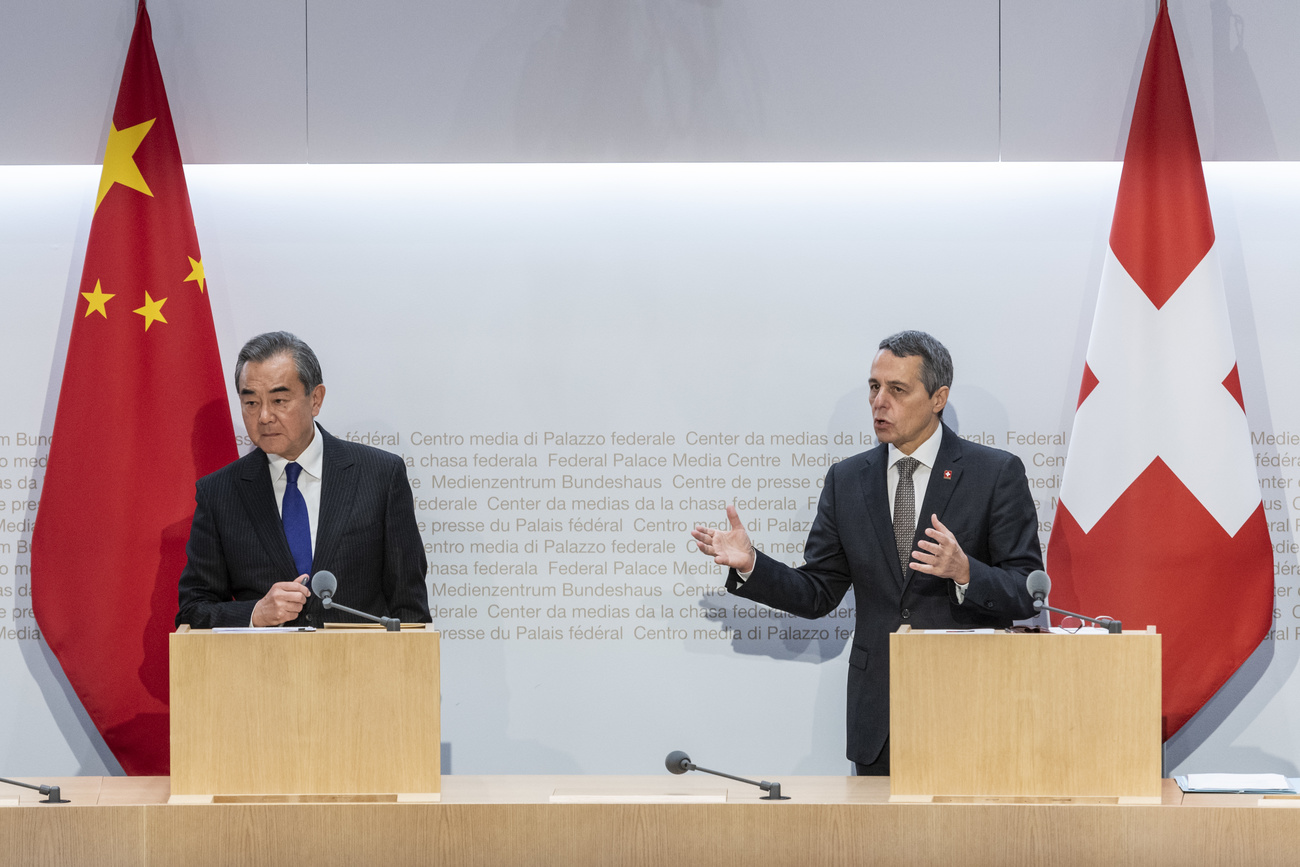
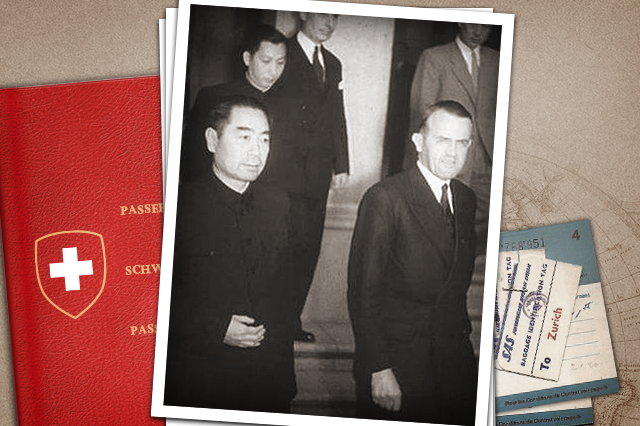
You can find an overview of ongoing debates with our journalists here . Please join us!
If you want to start a conversation about a topic raised in this article or want to report factual errors, email us at english@swissinfo.ch.